
Post-Primary
In developing the Partnership for Learning suite of courses, we aim to provide courses which are of interest to staff in our 4 key sectors: Early Childhood Education, Primary, Post-Primary and Further Education and Training. The following courses are all suited to Post-Primary Education, although staff in other settings are free to participate in most of the courses provided.
|
Course Number |
Name of Course |
Dates |
|---|---|---|
|
PL01 |
Creativity and Creative Writing |
Monday 7th October '24 Monday 14th October '24 Monday 21st October '24 |
|
PL02 |
Exploring Scientific Literacy |
Monday 14th October '24 Thursday 24th October '24 |
|
PL05 |
Enquiry Based Practical Biology |
Tuesday 15th October '24 Tuesday 22nd October '24 Tuesday 5th November '24 Tuesday 12th November '24 |
|
PL06 |
Supporting Neurodivergent Learners in Post-Primary and Further Education |
Tuesday 15th October '24 |
|
PL08 |
Assessment in the Age of Generative Artificial Intelligence |
Rescheduled semester 2 Thursday 20th March 2025 |
|
PL09 |
Developing the role of Treoraithe in their support of Student Teachers on school placement |
Tuesday 5th November '24 Tuesday 12th November '24
|
|
PL12 |
Supporting EAL Students in Post-Primary Classrooms: Culturally and Linguistically Responsive Teaching and Learning Strategies |
Monday 11th November '24 Monday 18th November '24 Monday 25th November '24 |
|
PL13 |
Diversity in the Basic Skills Classroom |
Tuesday 12th November '24 |
|
PL19 |
Understanding, Living and Leading the Ethos in a Catholic School |
Friday 24th January '25 |
|
PL21 |
Developing Digital Literacy |
Thursday 6th February '25 Thursday 20th February '25 Thursday 13th March '25 |
|
PL22 |
Introduction to key legal issues for teachers |
Monday 24th February '25 Monday 3rd March '25 Monday 10th March '25 |
|
PL24 |
An introduction to AD(h)D |
Thursday 27th February '25 |
|
PL25 |
EAL for Post Primary & FET Teachers in Mainstream and Special classes |
Monday 3rd March '25 Monday 10th March '25 |
|
PL26 |
Teaching the 'Taboo': Preparing to teach Relationships and Sexuality Education (RSE) |
Monday 10th March '25 Tuesday 11th March '25 |
|
PL27 |
Transforming Social, Personal and Health Education (SPHE) in Ireland |
Monday 31st March '25 Monday 7th April '25 |
| PL28 | Implementing CLIL and Translanguaging in Multilingual and Bilingual Classrooms | Wednesday 16th October ‘24 Wednesday 23rd October ‘24 |
Course Details

PL01 - Creativity and Creative Writing
| Dates | Monday 7th October '24 Monday 14th October '24 Monday 21st October '24 |
| Time | 5.30pm-7.00pm |
| Number of sessions/duration | 3 x 1 hour |
| Maximum No of participants | 300 |
| Course Leaders | Nora Nic Con Ultaigh |
| Format | Online via Zoom |
Course Outline
Fighting Words engages with schools and teachers across the island of Ireland offering creative writing workshops and projects from twenty-three locations. The organisation provides creative writing sessions in these centres, in schools, on-line, and convenes young writing groups, playwriting and scriptwriting groups, and summer camps for children and young people. In addition Fighting Words runs a programme at DCU focussed on teacher education, research, CPD and school outreach projects.
This course is for primary and post-primary school teachers and aims to provide an introduction to the participative and creative methodologies used by Fighting Words, including experiencing a Fighting Words workshop first hand. The course will focus on supporting teachers to use creative education and creative writing in their own classrooms, looking at different subject areas and integrated approaches. Participants will look at the educational research and impact data on creative writing for children and young people, and the resources and supports available to teachers.
In addition the course will cover the range of creative activities and opportunities available to students and teachers from Fighting Words, including creative writing projects organised to support teachers who want to write creatively themselves.
Profile of Course Leaders
Nora Nic Con Ultaigh is a representative of the creative writing centre 'Fighting Words' in DCU. She is an arts-in-education practitioner with over 20 years of experience. In 2004 she established Cups and Crowns Educational Theatre Company with two fellow graduates from the MA in Drama and Theatre Arts in NUIG. She also worked as a Post-Primary teacher of English, French and CSPE for 10 years. She currently works as a Regional Coordinator and Creative Associate on the Creative Schools programme. She has a passionate interest in creativity in education and in fostering youth voice within a rights-based model.

PL02 - Exploring Scientific Literacy
| Dates | Monday 14th October '24 Thursday 24th October '24 |
| Time | 6.00pm-8.00pm |
| Number of sessions/duration | 2 x 2 hrs |
| Maximum No. of participants | 300 |
| Course leader | Mary O'Donnell |
| Format | Online via Zoom |
Course Outline
This course will offer teachers the opportunity to explore scientific literacy in more detail. The importance of equipping our students with scientific literacy skills for success in modern societies will be discussed, as well as the challenges and opportunities associated with developing scientific literacy in the classroom. Ways of supporting the development of students' scientific literacy skills will be examined and practical resources for the classroom will be evaluated. This course will be primarily aimed at the teachers of Junior Cycle Science, and it aims to support teachers embed scientific literacy at Junior Cycle, before changes to Senior Cycle Science come into effect.
Profile of Course Leader
Mary O'Donnell is a Teacher Fellow in DCU and she is currently completing her PhD in the area of Science Education. Mary completed her Science Education degree in Maynooth University and her Post Graduate Diploma and Masters in Trinity College Dublin. Mary was a Maths, Chemistry and Science teacher for 10 years. Mary collaborated with the NCCA and JCT as the Junior Cycle Science specification was rolled out and she has worked on the PME and undergraduate courses in Maynooth University and DCU for the last 8 years.
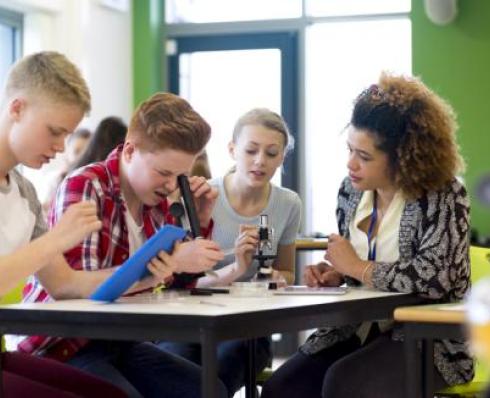
PL05 - Enquiry Based Practical Biology
| Dates | Tuesday 15th October '24 Tuesday 22nd October '24 Tuesday 5th November '24 Tuesday 12th November '24 |
| Time | 5.00pm-7.00pm |
| Number of sessions/duration | 4 x 2 hrs |
| Maximum No of participants | 15 |
| Course Leader | Natalie O'Neill |
| Format | On Campus |
Course Outline
This course is for biology teachers who are interested in learning how to teach enquiry-based practical work at senior cycle. Over the course of 4 weeks teachers will explore enquiry-based workshops on Microscopy, MicroDissection, Enzyme Reactions and Plant Biology. It will be an opportunity to develop the laboratory skills needed to plan, prepare and teach senior cycle practical work and to share ideas in collaboration with other biology teachers.
Profile of Course Leader
Dr Natalie O'Neill, the Programme Chair for Science and Mathematics Education at DCU is also a qualified science teacher with 25 years of experience in teaching practical biology at second and third level. She is the Chairperson of the Biology Education Special Interest Group where she is working to highlight the needs of biology educators in areas such as practical pedagogy and botanical education. She has developed a framework for teaching practical activities through enquiry that focuses on learning to design and develop practical lessons that align with the enquiry-based orientation of the new biology specification, which she will share with biology teachers in this series of workshops.

PL06 - Supporting Neurodivergent Learners in Post-Primary and Further Education
| Dates | 15th October '24 22nd October '24 |
| Time | 6.00-8.00 pm |
| Number of sessions/duration | 2 x 2 hours |
| Maximum No. of participants | 20 |
| Course leader | Neil Kenny |
| Format | Online via Zoom |
Course Outline
This short programme addresses the inclusion of neurodivergent learners in post-primary and further education settings. The programme will outline the profiles of strengths and areas for support among this cohort of learners. A neurodiversity-affirming perspective is used to discuss how inclusive education can be planned and supported. The neurodiversity paradigm views diversity and differences, including disabilities, as natural aspects of humanity. It recognises that autistic and otherwise neurodivergent individuals may face challenges due to their unique experiences and perspectives. Support systems and societal acceptance or flexibility should be the foundation of educational practices to accommodate and respect these differences.
Profile of Course Leader
Neil Kenny is Assistant Professor at the School of Inclusive and Special Education at Dublin City University where he is the Programme Chair of the Master of Education in Autism. His research interests are in the areas of autism, participatory research, and inclusive education.
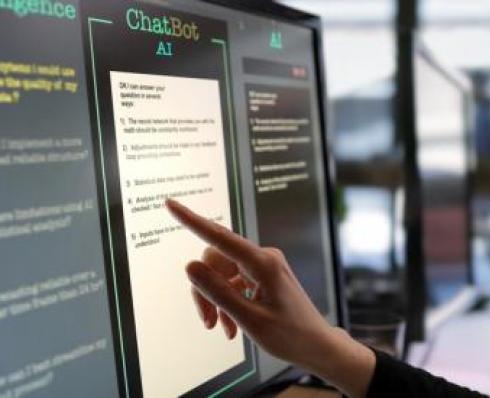
PL08 - Assessment in the Age of Generative Artificial Intelligence
| Dates |
Rescheduled semester 2 Thursday 20th March 2025 |
| Time | 6.00pm-7.30 pm |
| Number of sessions/duration | 2 x 1.5 hours |
| Maximum No. of participants | 40 |
| Course leader | Dr Orna Farrell |
| Format | Online via Zoom |
Course Outline
This short course will provide FET staff with an awareness of the ongoing challenges to assessment design posed by Generative Artificial Intelligence tools. The emergence of generative Artificial Intelligence (AI) tools such as ChatGPT and DALL-E pose a challenge to the academic integrity of traditional assessment approaches. However, this challenge is also an opportunity to innovate and evolve higher education assessment to be more authentic, creative and inclusive. This short course will explore how to design assessment which takes account of these new technologies and the key principles of assessment design: validity, reliability and fairness and remains robust in terms of academic integrity.
Profile of Course Leader
Dr Orna Farrell is Associate Professor of Education, specialising in digital education based in the School of Policy Practice, Institute of Education in Dublin City University (DCU).
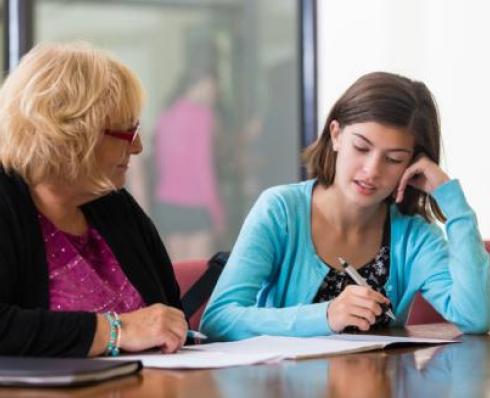
PL09 - Developing the role of Treoraithe in their support of Student Teachers on school placement
| Dates | Tuesday 5th November '24 Tuesday 12th November '24 |
| Time | 5:00pm-7:00 pm |
| Number of sessions/duration | 2 x 2 hrs |
| Maximum No of participants | 300 |
| Course Leader | Sarah O'Grady & Eimear Holland |
| Format | Online via Zoom |
Course Outline
In the spirit of partnership, two workshops will be aimed at supporting primary and post-primary partners, specifically school-based placement coordinators and Treoraithe (formerly known as the Cooperating Teachers), who work with student teachers from DCU. These workshops will provide school-based partners with an overview of effective placement processes and provision, and explore a variety of ways in which partners can actively support and empower student teachers working with them and their pupils/students during placement periods. During these workshops partners will be facilitated to critically reflect upon and explore their mentoring practices in light of expanded skills, knowledge and understanding. Such practices may include: effective observation and feedback techniques; conducting professional learning conversation; and models of Team-Teaching etc.
Profile of Course Leader
Dr Sarah O’Grady is an Assistant Professor in Education at Dublin City University, Institute of Education. Sarah is Academic Coordinator of Professional Placement for the BEd in Gaeilge, and French or German or Spanish (BEdLan) programme at DCU, which is a four-year concurrent post-primary initial teacher education programme. Prior to joining DCU, Sarah taught modern languages for over fifteen years in the post-primary sector. Her research interests include teacher education policy and the development of reciprocal school-university partnerships.
Dr Eimear Holland is an Assistant Professor in Education at Dublin City University, Institute of Education. Eimear is Primary Professional Placement Coordinator of the Bachelor of Education (Primary) and Professional Masters in Education Programmes and formerly held a school placement coordinator role for post-primary. Prior to joining DCU, Eimear taught Physical Education and Religious Education in the post-primary sector whilst also engaging in the role of ‘teacher as a researcher’ and professional learning and development consultant and sat on the National Teacher Research Panel in the United Kingdom.

PL12 - Supporting EAL Students in Post-Primary Classrooms: Culturally and Linguistically Responsive Teaching and Learning Strategies
| Dates | Monday 11th November '24 Monday 18th November '24 Monday 25th November '24 |
| Time | 4.00pm-5.00pm |
| Number of sessions/duration | 3 x 1 hrs |
| Maximum No. of participants | 30 |
| Course leader | Irene White & Fiona Gallagher |
| Format | Online via Zoom |
Course Outline
Mass immigration and the ongoing conflicts in Ukraine and elsewhere have seen a dramatic increase in the number of students for whom English is an additional language (EAL) in post-primary education in Ireland. Recent DES reports call for a greater variety of teaching, learning and assessment approaches to develop EAL students’ language skills and enable them to progress through the curriculum and reach their full potential (DES, 2024). This course is for post-primary teachers of all subjects (e.g. History, Geography, Maths, Science, Music etc.). It explores a range of culturally and linguistically responsive teaching and learning strategies that support EAL students in mainstream classes. We will provide practical examples of how creative tasks and linguistic scaffolding can facilitate access to curricular content for students for whom the language of instruction (English or Irish) is not their first language (Cummins, 2009; Hammond, 2009; Gallagher and Leahy, 2019). We will also explore how creativity and playfulness can be used in supporting EAL students, particularly those who may have suffered traumatic experiences.
Profile of Course Leader
Dr Irene White is a lecturer and researcher in Dublin City University. She teaches and researches in the areas of creativity, english education, drama education and academic reading and writing. Irene is Programme Chair of the Professional Master of Education. She previously taught at post-primary and currently teaches across a range of undergraduate and postgraduate initial teacher education programmes.
Dr Fiona Gallagher is an assistant professor in the School of Applied Language and Intercultural Studies (SALIS) at Dublin City University. Her research interests relate to the fields of second language acquisition and bi/multilingual education and include a particular focus on teaching and learning in the linguistically and culturally diverse primary and secondary school classroom.

PL13 - Diversity in the Basic Skills Classroom
| Dates | Tuesday 12th November '24 Tuesday 19th November '24 |
| Time | 6.00pm-8.00pm |
| Number of sessions/duration | 2 x 2 hrs |
| Maximum No of participants | 300 |
| Course Leader | Mary McGrath |
| Format | Online via Zoom |
Course Outline
We will be exploring the challenges and potential presented in having a diverse learner profile in a low literacy or language classroom. I will draw on real-life scenarios from my own work as well as asking participants to reflect on their own experience as students and educators. We will consider different types of diversity including some that are overlooked, e.g. social class and age.
Profile of Course Leader
Mary McGrath is an Adult Literacy Organiser in Swords, which is part of Dublin Dublin Laoghaire ETB, a busy service with hundreds of literacy and language students. There is a diverse range of backgrounds, abilities and learning goals amongst our students. She is especially interested in digital skills for literacy and language students and inclusion strategies for older learners.

PL19 - Understanding, Living and Leading the Ethos in a Catholic School
| Dates | 24th January '25 31st January '25 7th February '25 |
| Time | 4.00pm-6.00pm |
| Number of sessions/duration | 3 x 2 hrs |
| Maximum No of participants | 20 |
| Course Leader | Dr David Kennedy |
| Format | Online via Zoom |
Course Outline
Ethos, so what? All schools necessarily and implicitly espouse a vision of the human person and give expression to a particular ethos by their choices, actions, and priorities. This course brings participants into conversation with the role of ethos in Catholic schools. It speaks to ethos not as some abstract or aspirational concept, but as something that is lived out and acted upon in school communities. Participants will explore the question of ethos and patronage as it is encountered today in Irish education at primary and post-primary level. It highlights the distinctiveness of a Catholic ethos and the manner in which it is encountered in the day-to-day life of a Catholic school. From this short-course, participants will deepen their understanding of how the ethos underpins, contributes, and enhances the teaching and learning across the all the curriculum areas in a Catholic school and, as a result, enhance their capacity to effectively lead in this important aspect of the teaching and learning offered by a Catholic school in a pluralist Ireland.
Profile of Course Leader
Dr David Kennedy (BA; MA; PhD; SFHEA) is Assistant Professor of Religious Education in the School of Human Development at DCU, Institute of Education. He has worked extensively with national management and patronage/trusteeship bodies in Catholic Education in the Republic of Ireland in the area of ethos development at primary and post-primary level.

PL21 - Developing Digital Literacy
| Dates | Thursday 6th February '25 Thursday 20th February '25 Thursday 13th March '25 |
| Time | 4.00-6.00 pm |
| Number of sessions/duration | 3 x 2 hours |
| Maximum No. of participants | 70 |
| Course leader | Peter Tiernan |
| Format | Online via Zoom |
Course Outline
This introductory course will provide teachers with an opportunity to explore digital literacy as it relates to their classroom practice. The course will engage with relevant literature and policy documents to define digital literacy and provide detail on the competencies it includes. Participants will be encouraged to examine practical ways of developing their students digital literacy skills by reflecting on their practice and identifying ways to introduce: 1) Information, data and media literacy, 2) Online communication, collaboration and participation, 3) Digital content creation, 3) Online safety and wellbeing, 4) Problem solving using digital tools.
Profile of Course Leader
Dr Peter Tiernan is an Associate Professor of Digital Learning and Digital Literacy at the Institute of Education, Dublin City University. Peter is responsible for the design, delivery and evaluation of a broad range of modules at the Institute of Education, which enable teachers and other educators to harness the potential of technology in education while becoming critical evaluators of technology and the role it plays in teaching and learning, and in society more broadly. Peter's research covers the spectrum of digital learning, but he has a specialist interest in digital literacy and its development among students and wider society.

PL22 - Introduction to key legal issues for teachers
| Dates | Monday 24th February '25 Monday 3rd March '25 Monday 10th March '25 |
| Time | 6.30 pm - 8.00 pm |
| Number of sessions/duration | 3 x 1.5 hours |
| Maximum No of participants | 35 |
| Course Leader | Ciara Johnson |
| Format | Online via Zoom |
Course Outline
This course, which will take place over three evenings, offers teachers the opportunity to reflect on legal issues relevant to the school context. It will allow participants to become familiar with legislation and case law pertinent to a range of aspects of school life which will inform and enhance their practice. Indicative areas the course will address:
Indicative areas the course will address:
- The duty of care
- Supervision of students
- Child Protection
- Data Protection and Copyright
Profile of Course Leader
Ciara is a practising barrister with a particular interest in Education Law and Child Law. She has previously authored, tutored and assessed modules on the post-graduate Diploma/MA degree programme 'Education and the Law' in St. Angela's College, Sligo/NUIG. She lectures on a wide range of legal areas and cases relevant to school personnel including Management Bodies, Boards of Management, Senior Management, Teachers and other school personnel.

PL24 - An Introduction to AD(h)D: Teaching Children with ADHD Symptoms
| Dates | Thursday 27th February '25 |
| Time | 4.00pm-6.00pm |
| Number of sessions/duration | 1 x 2 hrs |
| Maximum No of participants | 20 |
| Course Leader | Gráinne McKenna & Ger Scanlon |
| Format | On Campus |
Course Outline
An overview of ADHD, its signs and symptoms, and the challenges this can present for students' academic learning, social-emotional well-being, and relationships with peers and school staff. We will share the experiences and perspectives of Irish teachers working with students who experience ADHD symptoms.
We will provide attendees with insights into evidence-based approaches and strategies that can be used to support children with ADHD symptoms within school settings.
Profile of Course Leader
Gráinne McKenna is an Assistant Professor at Dublin City University Institute of Education and has also worked as a primary school teacher and Developmental and Educational Psychologist. Gráinne has a special interest in social justice and teacher-child relationships.
Dr Ger Scanlon is an Associate Professor in Psychology and Education in the School of Human Development. She has significant experience of national and international collaboration on studies that explore and support the inclusion of Children with Special
Educational Needs in mainstream education.
Since 2021, Grainne and Ger have been working on TAC (Teaching ADHD Children), a European-wide project to support teachers working with children experiencing ADHD symptoms in school settings. As part of this project, teachers from across Europe, including over 200 Irish teachers, shared their experience, practice and knowledge of ADHD, and this informed the development of a continuing professional development programme for primary and secondary teachers that has now been piloted in Ireland, Germany, Portugal and Bulgaria.
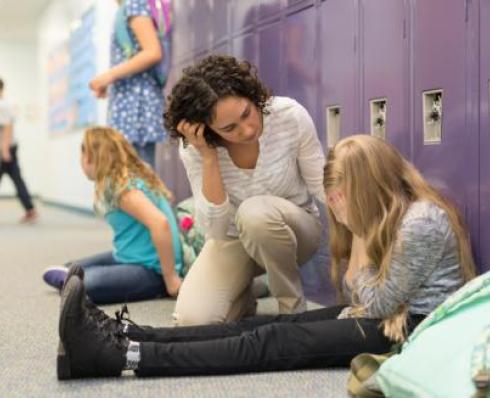
PL25 - EAL for Post Primary and FET Teachers in Mainstream and Special Classes
| Dates | Monday 3rd March '24 Monday 10th March '24 |
| Time | 7.00pm-9.00pm |
| Number of sessions/duration | 2 x 2 hrs |
| Maximum No of participants | 60 |
| Course Leader | Carol Gardiner |
| Format | Online via Zoom |
Course Outline
This course investigates how free digital tools might be used to support the English as an Additional Learners (EAL) in the mainstream Irish classroom. Integrating English as an Additional Language (EAL) into subject plans requires careful consideration and planning to ensure that the needs of EAL students are met while maintaining the overall learning objectives of the subject, this course shows how teachers might use digital tools to help them achieve their learning intentions. This work is based on real life experience teaching students and supporting teachers with English as an Additional Language (EAL). It is hoped that this paper will showcase simple tools to make teachers' lessons more accessible to EAL students.
Profile of Course Leader
Carol Gardiner works for the National Council of Curriculum and Assessment (NCCA) as an Education Officer for SEN. Prior to this she worked for the Professional Development Service for Teachers (PDST)/ Oide as an Advisor for English as an Additional Language at Post Primary Level. She is seconded from her role as a mainstream class teacher and Special Education Teacher in Coláiste Cholmcille, Ballyshannon, Co. Donegal. She is a fourth year doctoral student in the area of Special and Inclusive Education. Her doctoral research is entitled "Using the experiences of Irish mainstream senior cycle learners diagnosed with Developmental Co-Ordination Disorder (DCD) to provide better for their inclusion.

PL26 - Teaching the 'Taboo': Preparing to teach Relationships and Sexuality Education (RSE)
| Dates | Monday 10th March '25 Tuesday 11th March '25 |
| Time | 5.00pm-8.00pm |
| Number of sessions/duration | 2 x 3 hrs (note, the second session is a continued session, i.e. participants should attend both sessions) |
| Maximum No of participants | 35 |
| Course Leader | Leanne Coll and Pam O'Leary/ Leanne Harding / Joy Creighton |
| Format | On Campus |
Course Outline
This course will bring together post-primary educators with an interest in developing their knowledge on what counts as high quality Relationships and Sexuality Education (RSE). The course will run over two evenings and will also include preparatory learning materials tailored to support participants’ engagement with the content.
The course has been co-designed with a collective of experienced post-primary educators leaders in SPHE-RSE working across diverse school contexts in Ireland. The collective are also graduates of the DCU Graduate Diploma in SPHE-RSE and qualified subject specialists in the area of SPHE-RSE
This course will provide opportunities for participants to actively explore what it means to create and maintain a safe, inclusive and empowering RSE learning environment; one that is relevant and responsive to the needs of young people. Critical, creative and co-productive approaches to RSE will be actively modelled across areas of learning that are often considered ‘taboo’ and/or difficult to teach (pleasure; gender and sexual diversity; pornography; violence). Case studies of innovative practice in RSE across diverse contexts will be shared by experienced RSE educators and opportunities provided for participants to critically consider what constitutes high quality RSE. The course will also support participants’ understanding of how their practice meets educational policy and curricular requirements (current and evolving) for Junior and Senior Cycle, and in turn, alignment with relevant international standards.
Profile of Course Leader
Dr Leanne Coll is an educator and academic from Dublin City University, Institute of Education with over 12 years experience researching and teaching in the area of sexualities and relationship education (both in Ireland and internationally). Her work with young people and educators focuses on transformative potentials of co-productive, creative and affirmative approaches to RSE.
This course has been co-designed and will be co-delivered with a collective of experienced post-primary educators and recent graduates of the DCU Grad Dip in SPHE. As part of the course, the collective will share their experiences of and expertise in transforming RSE across diverse contexts in Ireland."
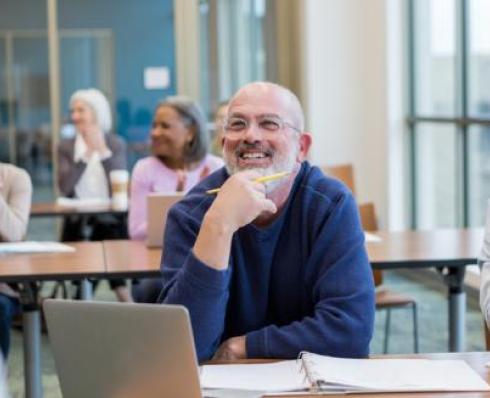
PL27 - Transforming Social, Personal and Health Education (SPHE) in Ireland
| Dates | Monday 31st March '25 Monday 7th April '25 These sessions are Part 1 and Part 2, participants are advised to attend both. |
| Time | 5.00pm-8.00pm |
| Number of sessions/duration | 2 x 3 hrs |
| Maximum No of participants | 35 |
| Course Leader | Leanne Coll & Katie-Ellen Judge/ Katryn Scully / Celine Phibbs |
| Format | On Campus |
Course Outline
SPHE practice is constantly changing as educators adapt and develop new ideas and respond to young people’s evolving questions, needs and concerns. This course aims to capture this shifting landscape of SPHE and support participants in re-thinking what more SPHE can be and become with and for young people.
The course has been co-designed with a collective of experienced post-primary educators leaders in SPHE-RSE working across diverse school contexts in Ireland. The collective are also graduates of the DCU Graduate Diploma in SPHE-RSE and qualified subject specialists in the area of SPHE-RSE
(see https://www.dcu.ie/courses/postgraduate/school-human-development/graduate-diploma-social-personal-and-health).
The course is research-informed, participatory and creative, modelling promising practice in SPHE. Experienced SPHE educators-leaders will share their experiences of carrying out participatory inquiry projects (creative audits) at their schools in which they used creative methods to gather the views of young people, colleagues, parents and school leaders about how SPHE is being provided in their schools. They will invite participants to engage with a range of creative and arts-based audit strategies which enabled them to focus on what key stakeholders know and wonder about SPHE, the contextual needs of their school community and challenge assumptions about ‘what matters’ in SPHE-RSE. The course will support teacher-participants in the design of their own creative audits and their individual learning journey towards bringing about changes to SPHE in their own diverse contexts.
Profile of Course Leader
Dr Leanne Coll is an academic and educator working on the DCU Graduate Diploma in SPHE-RSE. Her extensive national and international research has focused on the potentials of working with young people and educators to transform SPHE-RSE.
This course has been co-designed and will be co-delivered with a collective of experienced post-primary educators and recent graduates of the DCU Grad Dip in SPHE. As part of the course, the collective will share their experiences of listening to and responding to the needs of students and key stakeholders in SPHE across diverse contexts in Ireland and implications for whole school approaches to SPHE.

PL28 - Implementing CLIL and Translanguaging in Multilingual and Bilingual Classrooms
| Dates | Wednesday 16th October ‘24 Wednesday 23rd October ‘24 |
| Time | 5.00pm-7.00pm |
| Number of sessions/duration | 2 x 2 hours |
| Maximum No. of participants | 15 |
| Course leader | Dr Ebru Eren & Dr Malgosia Machowska-Kosciak |
| Format | Online via Zoom |
Course Outline
This course aims to equip teachers with the necessary knowledge and skills to effectively implement Content and Language Integrated Teaching (CLIL) and Translanguaging strategies in multilingual and bilingual classrooms. Participants will explore the theoretical foundations of CLIL and Translanguaging, understand their practical implications, and learn how to design and deliver engaging lessons that leverage students' home languages and dialects. The course will cover topics such as principles of CLIL and Translanguaging, creating language-rich learning environments, integrating language and content objectives, scaffolding language development, and promoting intercultural understanding. Through interactive discussions, case studies, and hands-on activities, participants will develop practical strategies to support language and content learning for diverse student populations in Irish classrooms. CLIL and Translanguaging play pivotal roles in contemporary multilingual Irish classrooms by fostering cultural inclusivity, enhancing language proficiency, and promoting cognitive benefits.
By integrating language learning with content instruction and recognizing the value of students' home languages, these approaches create a more inclusive and effective learning environment, ensuring that language is not a barrier to academic success and preparing students for success in an increasingly interconnected world.
Profile of Course Leader
Dr Ebru Eren is a postdoctoral researcher at the Center for Human Rights and Citizenship (CHRE) Education at Dublin City University. Her research expertise includes linguistic and cultural diversity in the classroom, intercultural education, second language teaching as well as feminism and Queer theory. Previously, she worked at SSPC, the Science Foundation Ireland Research Centre for Pharmaceuticals, based at the University of Limerick. She holds a Ph.D. in Education from Trinity College Dublin, a Master's in Women's Studies, and a bachelor’s degree in Teaching English as a Second Language. Before her research career, she served as a post-primary language teacher in Turkey from 2007 to 2017.
Dr Malgosia Machowska-Kosciak (PhD) is a Post-Doctoral Researcher in Intercultural and Global Citizenship Education and Adjunct Assistant Professor at the Centre for Human Rights and Citizenship Education, The School of STEM Education, Innovation and Global Studies at DCU. She holds M. Phil and PhD in Sociolinguistics from Trinity College Dublin. Before she started work for CHRCE, Malgosia was affiliated with the Sociology Department in TCD and the Marino Institute of Education where she thought about issues connected to Migration and Education worldwide. She has been working with young migrants, refugees and asylum seekers through LMETB ( Louth and Meath Education and Training Board) for 10 years.
Interested in further study at DCU?
In addition to the Partnership for Learning non-accredited courses, the DCU Institute of Education also offers a wide arrange of postgraduate courses. See HERE for more details.
